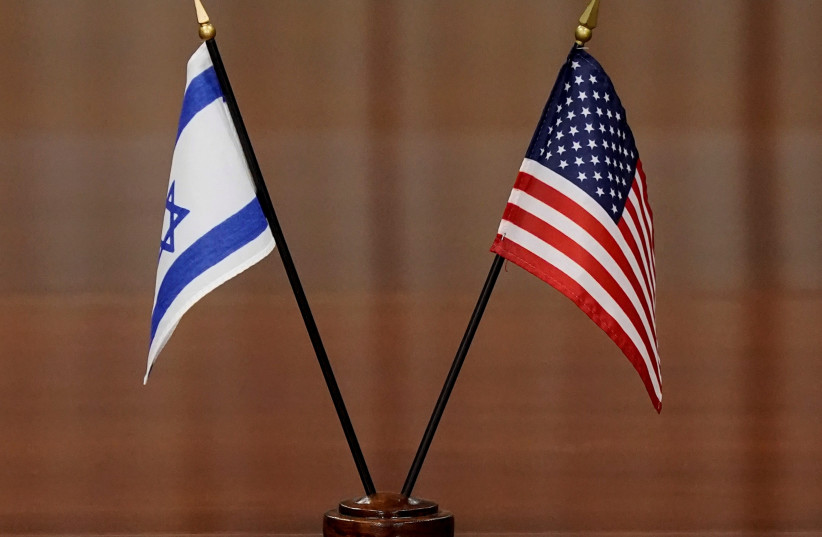'A Man of Spirit': The autobiography of a lifelong Jewish activist - review

Rabbi Dr. Barry Schwartz has been a lifelong activist, rarely pausing in his 58-year rabbinical career.
When I was a student for the rabbinate at the Jewish Theological Seminary of America in the early 1960s, we were urged to work hard in our congregations on the following:
One was to have a daily minyan. Later on, women were counted as well. Two was to encourage our members to have kosher homes and especially Shabbat meals. Third was to ensure that all Jewish community events were kosher. Fourth was to prepare our sermons well and translate all Hebrew into English.
Fifth was to have as many classes on Jewish topics and Halacha as possible for our congregants. Sixth was to hire trained teachers, where possible, so our Hebrew school would ensure that its graduates had as good a Jewish knowledge as possible.
For me, it was a pleasure to read A Man of Spirit, the autobiography of my classmate Rabbi Dr. Barry Schwartz (both of us were ordained in 1965), who lived up quite well to what our teachers expected of us.
A classmate's autobiography: He lived up to what the Rabbinic teachers expected
Because of his love for all Jews in Israel, the former Soviet Union, in American prisons, the elderly and the poor and needy, and his concern about the revival of Nazism in the US, he has been a lifelong activist, rarely pausing in his 58-year rabbinical career.
To trace the history of the Conservative Movement of America from the 1950s until 2000, it is important to read and study the biographies and autobiographies of the graduates of the Jewish Theological Seminary of America in that half century. After World War II, the Seminary had assembled under the leadership of chancellor Louis Finkelstein a faculty of the greatest Judaic scholars in the world: Saul Lieberman, Louis Ginzberg, Alexander Marx, Shalom Spiegel, Hillel Bavli, H.L. Ginsberg, and Abraham Joshua Heschel, to name a few.
Rabbi Schwartz is an exemplar of the “best and brightest” both in the synagogue and in Jewish activism. As a graduate of the noted Hebrew College in Boston and a year of study in Israel, he brought with him to the Seminary a honed knowledge of Hebrew and of biblical texts. From 1965 to 1967, he served as a chaplain in the United States Air Force as the buildup by America of troops in Vietnam continued.
He served two pulpits – in New Jersey and on Long Island, New York. His love of Israel expressed itself in different ways. His presence right after the Gulf War began infused him with a spirit that helped him rally his congregants and numerous individuals to help support Israel in its time of need.
After a correspondence with Simon Wiesenthal, he was asked to infiltrate an American Nazi cell in New York. Dressed in the appropriate clothing – a trench coat – he was the “infiltrator in disguise.”
In the spring of 1965 at a meeting of the group in an apartment on the Upper West side of New York City, he was in attendance. He recalls “the American Nazi members present talking about Jews – ‘they own this, they own that’ – pretty standard stuff. I was a little bit frightened.”
A real spy-thief, he went into the coat closet and found wallets with identification cards. He recorded all the information and sent it to Wiesenthal. He was so close with the famed Nazi hunter that Wiesenthal asked him to write a foreword to his book The Sunflower: On the Possibilities and Limits of Forgiveness.
The following quote is from that foreword. “‘The Sunflower’...is not a history, not an autobiography, not a novel, nor a sermon... ‘The Sunflower’ is a question. It leaves us precisely where European Jewry must leave us: in a state of quandary, of bewildered uncertainty. Why? How?”
He and his close friend Rabbi Sholom Stern demonstrated Jewish social activism by visiting American Jews incarcerated in jails, Jonathan Pollard in particular.
At both his synagogues there were daily services. He is the model of how a Conservative rabbi could personally serve and influence several thousand Jews during his rabbinate.
The career of Rabbi Schwartz will be studied to show what a Seminary rabbi graduate was capable of doing to maintain the real excellence of the Conservative movement in the half century following World War II. ■
A Man of Spirit: A Rabbi Navigates a Half-Century of Sweeping ChangeRabbi Dr. Barry Dov SchwartzEmerald Books, New York, 2022182 pages, $18
Jerusalem Post Store
`; document.getElementById("linkPremium").innerHTML = cont; var divWithLink = document.getElementById("premium-link"); if (divWithLink !== null && divWithLink !== 'undefined') { divWithLink.style.border = "solid 1px #cb0f3e"; divWithLink.style.textAlign = "center"; divWithLink.style.marginBottom = "15px"; divWithLink.style.marginTop = "15px"; divWithLink.style.width = "100%"; divWithLink.style.backgroundColor = "#122952"; divWithLink.style.color = "#ffffff"; divWithLink.style.lineHeight = "1.5"; } } (function (v, i) { });

